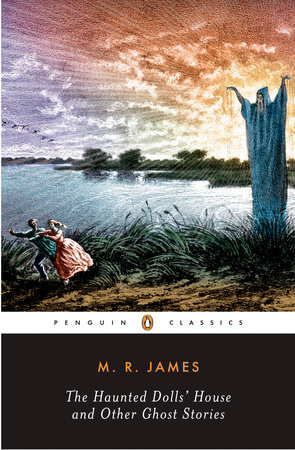
An American Marriage by Tayari Jones
This novel tracks the unraveling of a marriage after the husband is wrongfully convicted of a crime and sent to prison. It was well paced and exciting while still asking some big, juicy questions about marriage and commitment. I was pleasantly surprised with the depth Jones is able to achieve while writing what amounts to a romantic thriller.
 The Book of Essie by Meghan Maclean Weir
The Book of Essie by Meghan Maclean WeirI have an unhealthy obsession with ultra-conservative religions in America, and this book delivered a deliciously engrossing look into the inner-workings of both a fire and brimstone Christian family and a creepily orchestrated reality TV show. The Hicks family has been the focus of a reality TV show for Essie's entire life, and when she becomes pregnant (gasp!), her parents and the show's producers scramble to fit her into the narrative of their squeaky clean ethos. This was a very fun, very immersive read that took me only a few hours. It didn't hold any earth-shattering revelations about mankind or religion or our love of reality TV, but it had some good, fairly unexpected twists and was accessible enough for my currently addled brain.
 Rising Strong by Brene Brown
Rising Strong by Brene BrownThis was my first foray into the cult of Brene Brown, and I was impressed with how genuine and not self-helpy the whole process felt. The central idea of Rising Strong is that by confronting our failures and shortcomings and examining the ways in which we tell ourselves stories about ourselves and our realities, we can emerge stronger and better able to face the world. Brown relies heavily on her own experience as well as extensive interview-based human data, but she weaves in a massive range of other sources from pop lyrics to Dostoevsky, and I was won over by her willingness to make herself vulnerable paired with an unusually sharp understanding of humans and how they tick. This never felt condescending or trite (which is the tone I get from most books that preach some kind of life-altering hot take on the human condition), and I was left willing to read more Brene Brown if I ever have time again.
 The Female Persuasion by Meg Wolitzer
The Female Persuasion by Meg WolitzerWolitzer is really good at building interesting, multi-dimensional, only partially likable characters, and this was no exception. The novel tracks Greer Kadetsky (great name!) from her fumbling first sexual experience in high school, through college (at her safety school because her parents wouldn't file the financial aid paperwork), and into adulthood as she falls into a career with a feminist superstar. There is a lot of good here, but most interesting was Wolitzer's portrayal of Faith Frank, a Gloria Steinham-esque icon on the decline.
 Unsheltered by Barbara Kingsolver
Unsheltered by Barbara KingsolverI unabashedly love Barbara Kingsolver and will read basically anything she writes, but it helps that she seems to be getting better with age. Unsheltered shifts between a Trump-era middle-class family slowly circling the financial drain and struggling to hold it all together and a 19th-century family facing many of the same struggles, 200 years earlier. The centuries-wide split between narratives can often be jarring, but Kingsolver weaves the stories together well, and I found myself totally engrossed.
 The Hate U Give by Angie Thomas
The Hate U Give by Angie ThomasThis was my YA guilty pleasure read this summer, and I loved it. It's a YA spin on the Black Lives Matter movement, but it's well written and the narrator, Starr, is thoughtful and incisive without being overly precocious. Thomas has her heroine straddling two worlds: the largely black, lower-income neighborhood she calls home and the largely white, expensive private school she attends. The book is centered around a shooting that Starr witnesses in the opening pages, and there is a ton of social commentary woven throughout. Thomas has written a book that is accessible while still being brutally honest and open.
 Becoming by Michelle Obama
Becoming by Michelle ObamaI cried four separate times reading this book, all in public, and all totally uncontrollably. The autobiography tracks Obama's life from her start on Chicago's South Side all the way to her last days in the White House, and was totally gripping. She (and, I assume, her team of very talented ghost writers), writes beautifully and evocatively about race and education and poverty, but I was most struck by her reflections on motherhood and partnership: the heart-wrenching challenges of being a working mother, the sacrifices and compromises that came with agreeing to let Barack run for office, and the overwhelming strain that being in the public eye put on both of those roles and her sense of self and identity. I didn't it was possible for me to miss the Obamas more than I already did, but apparently, there was room for more.

...and one more for the road
Come with Me by Helen Schulman
I got this one in at the buzzer and was very pleasantly surprised. Come with Me takes place in Silicon Valley and tracks a crumbling marriage as it explores the limits of VR. It takes place in Palo Alto and weaves in the horrors of life in modern day Silicon Valley. Schulman crafts a startup, manned largely by insufferable Stanford undergrads, where the CEO's side project is a VR experience where one can explore all the "what ifs" in life: what if you never broke up with that first boyfriend, took one job over another, never lost that pregnancy? In what could have felt like a trite device, the main character Amy is thrust down these alternate paths throughout the novel, and it's surprisingly engaging.













